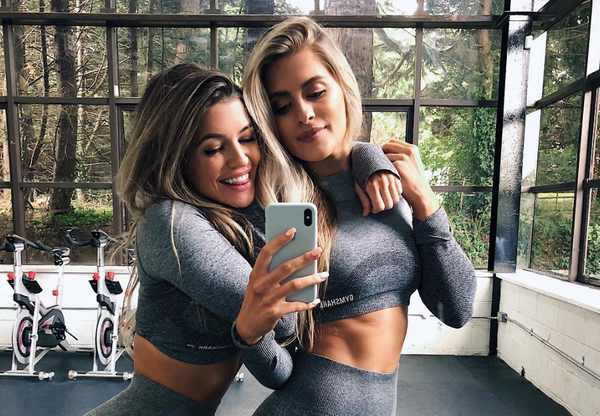When I first heard of depression, I was in middle school. My Dad had left and I saw a change in my little brother. All of a sudden the happy go lucky, hilarious all-star of a kid I had grown up with was sad and moody. I remember being told by my mom that she thought he was "depressed." In all actuality, it's very normal for a kid to go through some mood swings in a divorce, and the way my brother was acting and feeling was perfectly normal.
Unfortunately for me, I stored that definition in my 13 year old mind and began to view the world through that self-created lens.
When I saw someone crying, or upset I thought to myself, "hmm they must be depressed" as I averted eye contact and skirted by them, not wanting their "depression" to kill my vibe, as I thought that depression was interchangeable with sadness (news flash: it's an illness, not an emotion).
Though I could've lived my life with that idea of depression in my head without ever having my ignorance of the disease affect me, I didn't.
Looking back, I can clearly see it creeping into my life and swallowing me whole. But at the time I thought I was a lot of things, but none of those things were "depressed" in my mind.
When I was 17, I suffered a TBI and life changed drastically. I lost the love of my life (lacrosse) and filled my newfound free time with lying in bed feeling dead inside.
I remember swearing all the time that I was "just tired." As friends approached me in the halls with smiles and warm hugs, I felt nothing. Sure, I recognized them, and I knew I ought to be kind because I attributed the word "friend" to them, but emotionally there was no connection.
Soon that paralyzing numbness spread to my family. I remember so clearly the Christmas my Aunt, who I love more than there are words to describe, but rarely get to see embraced me. As she sat on the couch across from me attempting to get up to speed on my life in college, I remember feeling like I was half asleep. The conversation was exhausting me and I felt rage bubble up inside. I remember going up to my room and laying in bed, staring at the popcorn ceiling and wishing I were dead.
As months went on I alternated between feeling these crushing waves of hysteria, where I thought surely the pain of it would kill me and this overwhelming, emptiness. It came to a point where I was thankful for the times I felt that crippling pain because it spurned me into action. It was the only time I wanted to speak to other humans. It was the only time I could muster the strength to get out of bed to take a shower.
Depression doesn't always look like the girl or guy who's eyes are constantly puffy and tinged with red from crying.
Depression can look like the girl who's wearing a hat with a T-shirt and Nike shorts because she didn't have the energy to put on real pants or wash her hair.
Depression can look like the kid sitting in a public place with a vacant expression, as though they are completely unaware of the events unfolding around them.
Depression can look like the person that lays in bed with headphones in watching Netflix all day, even when their roommates or friends stop in and invite them to go places.
Depression can look like the person that doesn't care to do anything that they once loved. It can look like the star athlete that gives up sports or the bookworm that gives up reading. It can look like the rock-star that gives up music or the blogger that gives up posting.
Depression can look like the person that doesn't eat at all or the person that eats everything in sight.
Depression can look like a messy room or house because the person living there simply doesn't have the energy or motivation to clean.
Depression can look like the guy or girl that sits in the sunny courtyard frantically journalling. For all you know, they could be putting the words they want to use to say goodbye to paper.
Depression can cause self-harm, which can look like anything from cutting and burning to pinching and picking scabs or bloody knuckles.
Depression looks different in every single person you encounter. Just because someone's depression doesn't look like your Intro to Psych textbook or your favorite TV show describes it, doesn't mean someone isn't suffering.
Depression affects everyone differently and for that reason, and others, it needs to be left to medical professionals to diagnose. Self-diagnosis of depression or other mental illnesses is dangerous and unwise.
If you suspect that you or someone you know suffers from depression, seek medical help immediately.
But most importantly, be gentle and kind. Whether someone suffers from depression or not, everyone you meet is fighting some kind of battle that you might not know anything about. Their pain and their struggles are valid, and no one gets better by being told to "chin up" or "stop moping."
If you take nothing else from this article, please understand that depression is not a choice, it is a chemical imbalance of the brain. No one who suffers from mental illness wants to suffer from it and the stigmas and stereotypes you put on them do nothing but discourage them from getting help.
Depression is not just "being sad," so please don't demean it by describing it as such.



















